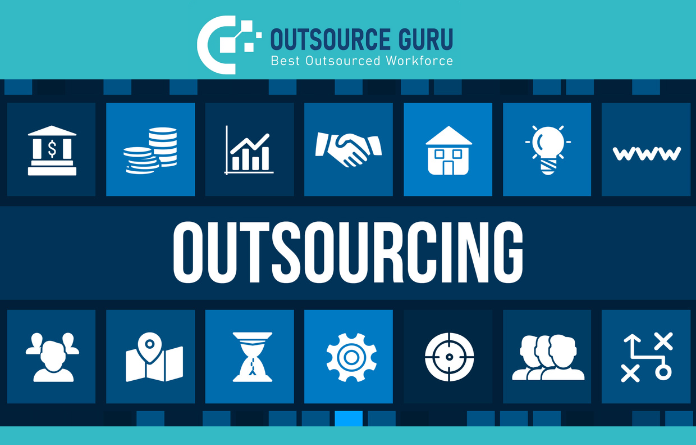What can businesses benefit from outsourcing today?
For the past two decades, when firms talked about outsourcing, they really meant offshore. The primary purpose was to reduce costs and enhance service, which was mainly accomplished by outsourcing work to nations with lower labor costs, such as India.
Offshoring has remained significant, according to Arora, but the way firms think about it has shifted. It’s not simply about labor arbitrage. “It’s now talent arbitrage.” You go where the talent is. The epidemic showed us that people don’t need to be in a specific geographic limit to accomplish business, which has prompted people to consider new forms of geographic strategies.” Nearshoring is one example.
The larger movement, however, has been toward transformational outsourcing as a tool for organizations to achieve strategic objectives, decrease costs, and improve their capacity to compete in a fast changing economic environment.
Richard Nolan, the chief people officer at Epos Now, has seen at first hand the power of transformational outsourcing to streamline operations and drive business growth. “The key benefit of transformational outsourcing is that companies can leverage external resources in a way that frees them to focus on their core competencies, helping them to stay competitive.
“So, this could involve taking complex processes such as IT infrastructure management or financial services and delegating them to experts – something that would be difficult for any one company alone,” he explains.
It can also provide organizations with access to cutting-edge technologies and skills without requiring big initial investments or long-term commitments, he observes. “Instead of needing an entire team dedicated to specific tasks, businesses simply pay a fixed fee with either variable hourly rates or performance-based payment structures.” This allows businesses more flexibility and freedom in budgeting and fast ramping up their operations.”
Furthermore, delegating certain duties to specialist teams offsite frees up time for employees to be more productive on projects that are more suitable for them. According to Nolan, this not only saves money but also increases efficiency by improving communication among remote teams around the world.
Traditional outsourcing aimed to reduce a company’s expenditures while providing the same or equivalent services. Business transformation outsourcing, on the other side, strives to substantially change the business, not merely its business procedures. The impact should be quantified through real performance criteria such as greater revenue, faster time to market, and more customer satisfaction.
Why are outsourcing companies business partners?
Almost a decade ago, studies revealed that huge corporations were wasting roughly $400 billion (£327 billion) each year on digital and analytic business transformations that failed to deliver on their promises. A subsequent Genpact analysis found that more than two-thirds of digital transformation projects fell short of goals, owing to miscommunications between IT and business teams.
Companies have reduced their losses by bringing in outside assistance and outsourcing this transition. According to Accenture, 90% of businesses would seek aid from third-party service providers for at least one aspect of corporate digitisation.
With any digitalisation drive, there is the issue of cybersecurity. “In the event of cybercrime or other hazards, you can be assured that an experienced outsourcing provider has the finest security practices in place,” says Brad Anderson, executive director of Fruition. “If you rely on internal safeguards, then digitising some assets can present challenges. Organisations launching such projects might also greatly benefit from the specialised knowledge available through outsourcing.”
That specialized knowledge is precisely what many outsourcing firms today take delight in. Data analytics, business intelligence, product and service development, customer and employee experience, and predictive modeling are some of the ways in which they assist firms in achieving transformation.
And when it comes to business transformation, technologies such as artificial intelligence will gain ground and become increasingly relevant. “So far we have seen pretty strong and sophisticated use cases of automation, but it’s been very rules-based,” says Arora. This, he thinks, will likely change.
For instance, if a business has a lot of manual processing of activities, one approach is to send those processes to a lower-cost jurisdiction with an experienced outsourcing services market. Alternatively, an organisation could repurpose its workforce so that some of the simpler, repetitive tasks could be delivered through automation. “Companies have been able to free up 30% to 50% of the time someone was doing manual work and given them more capacity by letting them focus more on the value-added creative service,” Arora says.
What are the advantages and disadvantages of outsourcing?
While there are many benefits to working with an outsourcing service provider for business transformation, the process also comes with challenges. Key among them, says David Cohen, CEO of online flower delivery service Love Rose, is managing the cultural and organisational differences between the outsourcing partner and the company. “Effective communication, collaboration and alignment are essential for a successful outsourcing partnership,” says Cohen.
Then there’s the risk of losing control over critical business processes and information. Cohen suggests carefully selecting outsourcing partners and implementing strong governance and security protocols. “Overall, transformational outsourcing can be a powerful tool for companies that want to adapt quickly to new ways of working. But it requires careful planning, communication and management to ensure that the benefits outweigh the risks and challenges.”
One of the most common mistakes businesses make is to hand over control of their whole company transformation to an outsourcing supplier. Arora refers to this as the lift-and-shift model. This style of corporate transformation can be disastrous when used by top-level leaders.
Similar to any transformation project, Arora says firms outsourcing transformation projects must be committed to change and invest in it. “That willingness to change is important. Those who capture it are investing in their own internal change processes.”
Outsourcing is essential for effective corporate transformation.
Throughout the years, there have been numerous examples of successful company transformation programs. Accenture’s assistance in increasing client retention rates was one of the early success stories. This was swiftly followed by IBM overhauling Procter & Gamble’s HR services, which served to 98,000 employees in 80 countries at the time. In 2018, KPMG leveraged transformational outsourcing in IT and operations to fundamentally improve a healthcare payer organization’s business by modernizing technology, automating regular business processes, and offering enhanced data and analytics capabilities.
If you’re the CEO of a company considering business transformation outsourcing, there are a few crucial factors that can mean the difference between success and failure.
The first is having a point person who understands your company’s strategic vision and can express it to the service provider effectively and convincingly. This person must collaborate closely with the organization’s team leaders to understand their goals and objectives, as well as communicate with the service provider to ensure that everyone is on the same page about what needs to change and by when.
Second, keep an eye out for any confrontations. It is fairly uncommon for company transformation efforts, which by definition challenge existing structures and concepts, to ruffle feathers and make people uncomfortable.
And finally, make sure this business transformation has support all the way from the top of the organisation. “You need to make sure you have executive buy-in and you have that executive buy-in over a period of time. Transformation is a journey. It isn’t something you can achieve in a period of three months or six months,” says Arora. “You need to have that commitment. And you need to have the patience to see it through. When an organisation is looking for quick wins, it’s unlikely to get them.”
Source : raconteur.net
________________________
Outsource Guru, headquartered in Singapore, is an established Industry Leader in Business Process Outsourcing Solutions and Software As A Service (SAAS) Integration. Currently partnering MSME’s and large corporations across 12 different industries globally, Outsource Guru has produced phenomenal results by successfully integrating AI technology and restoring workflow efficiency.
With its integrated grid of business solutions and a highly skilled international workforce, Outsource Guru is now the partner-of-choice for business establishments globally.












